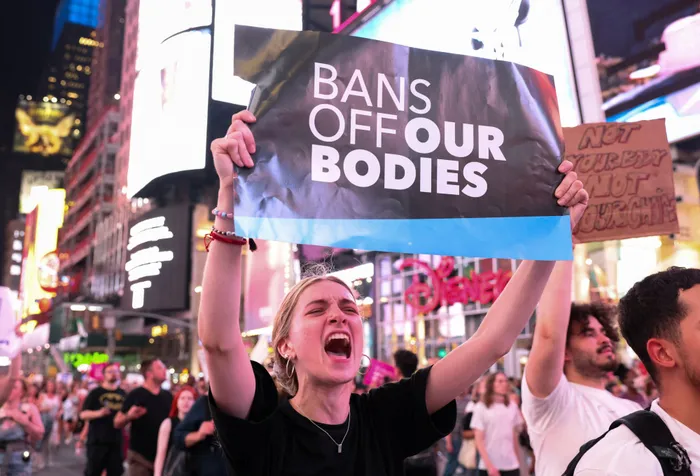The Right to A Safe Abortion Is a Moral Issue

By Matshepo Dibetso
For weeks now, I have been preoccupied with the #ROEvWade judgement – mulling why it is important to me, over on the other side of the world.
Trying to make sense of why abortion as a right has taken up so much of my brain space.
But I think it is the principle that women in 2022 cannot and should not be controlled by external laws, especially where their bodies are concerned.
Above and beyond the blatant hatred and disregard for women it is concerning to have to imagine that there are ways beyond those that currently exist that systems and governments and structures that make up the world, want women to still bow down to the rule of helplessness.
It goes without saying that if you were to stand in the middle of the issue of the right and access to safe abortions and look around it holistically, it runs in the vein of wanting to usurp as much control from women (over their own bodies) as possible.
Because in the larger scheme of (structural and systemic) things, women belong to the men who were appointed by the state, and the state appointed by God, to make decisions over their lives, it carries the assumption that women are destined to be cared for. It would be a thing to take comfort in if the world just wasn’t as violent as it is towards women.
In November of 2021, South Africa recorded 9,500 reported rapes in just over three months. One rape report is one too many. However, the statistic is even more harrowing when you consider that there are many rapes that go unreported. A woman choosing what to do with her body is what concerns men enough to put those restrictions over that choice into law. It is an insane way of viewing women but it is an even more insane way of using power.
In the South African context, the right to a safe abortion is integral to the issue of GBV prevention and eradication. Abortion becomes one of the ways survivors of GBV can assert some level of autonomy over their bodies without the pressure of carrying pregnancies that they do not want.
Unfortunately, because we live in a world that has very little care for women and their bodies there tends to be great oversight where autonomy is concerned. There is also often language that contributes to a rape culture.
These are commonly held ideas that invalidate the human experience of women.
We have a crisis of naming experiences and occurrences. That crisis has led to things being defined incorrectly. In 2021, a report detailing that 10- to 14-year-old girls were pregnant made news headlines. What should have been called statutory rape, has been labelled a teenage pregnancy crisis.
Failure to name things correctly extends to them not being addressed adequately. Abortion is a medical procedure – there is, however, a morality attached to the procedure that serves no one. It is a morality that suggests women have to carry guilt for seeking medical assistance.
Access to abortion should be seen as first and foremost the access to a medical procedure. The concern should also, therefore, be whether or not the procedure is safe.
Our bodies as women belong wholly to us – not to the state, not to men, they belong to us. The right and access to a safe abortion becomes a moral issue when we all believe that women are full, capable human beings, in full ownership of their bodies and can and should access services they deem fit for their overall health and wellbeing because to believe anything else is in fact immoral!
Dibetso is a Communications Manager at Agape Youth Movement
This article originally published in The African. To republish, see terms and conditions.